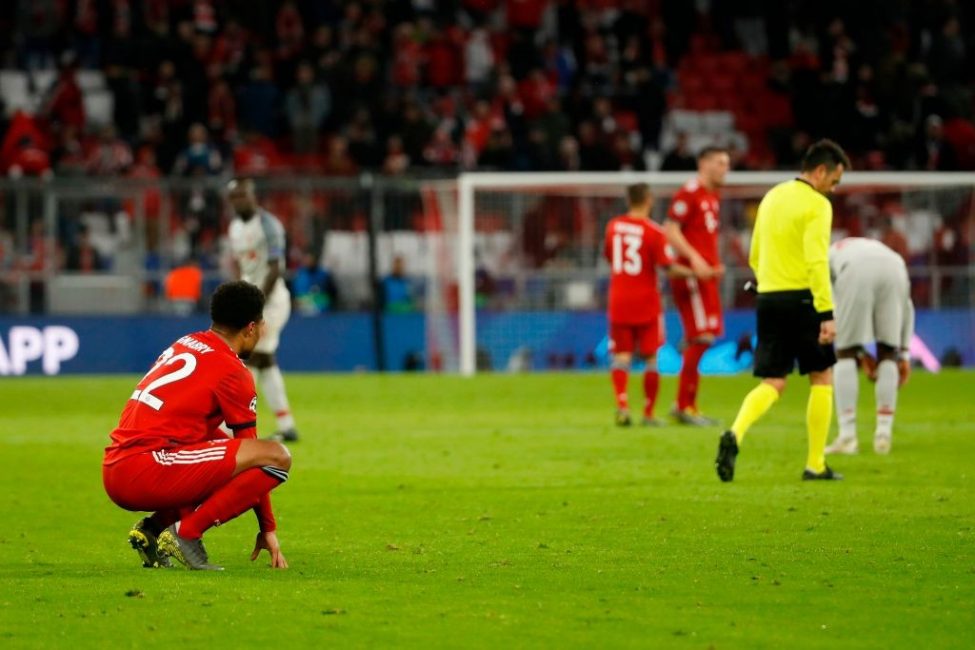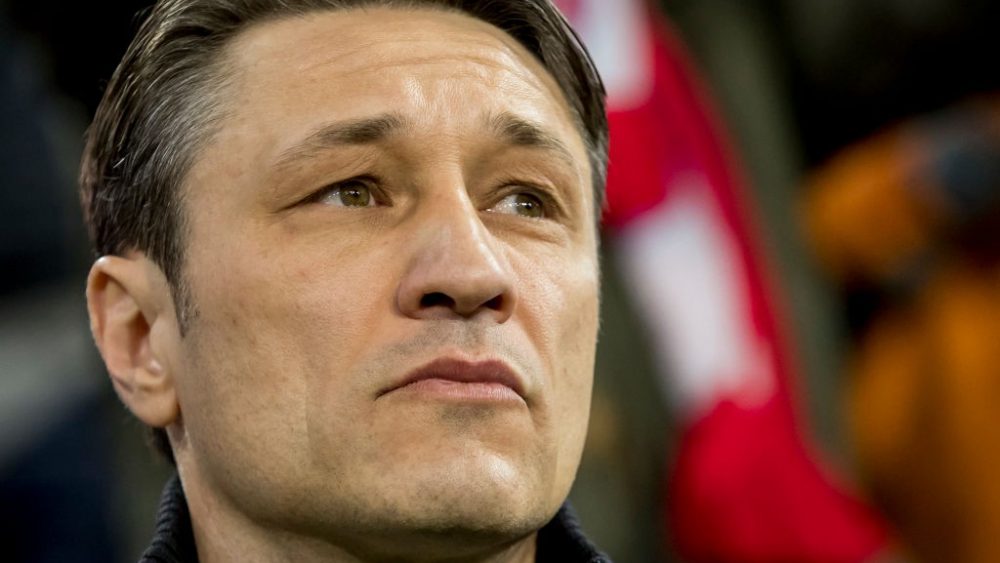Kovač and the search for balance
This is interesting because Hummels in particular complained about a lack of defensive players in both the national team and FC Bayern last year. Furthermore, a goal scored in the first leg could have proven sufficient if the team had managed to score without conceding a goal and as opposed to the three allowed in a home match.
So the groundwork itself was laid for the same litany of confessed sins (“individual mistakes”, “exploitation of chances”) and an expectation of salvation (“we must be committed defensively”), only the shortcomings in the offensive game were too obvious not to consider them decisive.
To recap: Liverpool were given a full half in an all-or-nothing game to reach the quarter-finals with one goal and two goals from the 69th minute onwards, thus saving a season that had already been thought lost.
This in a home game coming off a relatively easy game at the weekend where the focus should have been on this more important match. There were no more than one and a half structured attacks in the second 45 minutes. There were not even any significant unstructured attacks. The urgency was missing and there was never any threat of a Bayern goal.
There was no comparison to games from previous years under similar conditions as against Atlético or Juve, when you also had to score one or two goals. The fans of the Südkurve were treated to a 45-minute run without even getting a closer look at them once.
Despite the urgency of the situation, the team remained strangely inhibited in their forward thrust, as if it were not the return leg of a knockout round, but an ordinary league game.
Planned Lethargy
It seemed (and the interviews after the end of the game confirm this impression) that this lethargy or – to put it positively – patience had been intended at least up to 1:2 and was due to Kovac’s compactness mantra, whose offensive concept simply did not offer a starting point for catching up after the renewed deficit.
Because “there’s always something happening in the front, perhaps a set piece situation” may be justified as long as a goal would suffice to win or qualify.
But in a situation like after the 1:2 in the 69th minute, when you had to score two goals in 20 minutes, everyone (fans, players, coaches) knew that this would not be enough anymore. Since the changes coming from the coach’s bench (Goretzka and Sanches for Martínez and James) were not enough to catch up, it would inevitably have been up to the players to make a paradigm shift and take the bull by the horns.
However, they remained faithful to the end and defended safely with six men.
It wasn’t long ago that the Bayern coach of the time, Guardiola, was blamed in the local media for forcing the players into a rigid tactical corset that would rob them of their freedom, their individuality, their spontaneity.
If anything, this image applies more to the playing style at Kovač . In an effort to keep the game compact and to maintain a basic defensive order even during their own attacks, the players have lost an identity that for years offered the key to forcing defensive bombs and purely destroying opponents to their knees: Namely, that all 11 players participate in the attack and not merely 3-5 offensive players more or less isolated from the rest of the team, who are constantly outnumbered.
While this is enough in most Bundesliga matches and usually leads to success against European middle-class clubs, the individual class of Bayern players in such a system is simply not enough to compete at the highest level.
Only Coman in top condition could be trusted to assert himself with his dribbling strength and speed in duels with teams such as Liverpool or Barcelona, even in situations where he is almost on his own.
Compactness as a response to the crisis
Throughout the entirety of Niko Kovač’s tenure as Bayern’s coach, he has put a priority on finding stability and compactness. This can be characterized by a method based on trial and error which is fundamentally nothing to object to.
The best coaches of the world experiment around at their formations and try to optimize them. What is striking about the season, however, is that Kovač became more and more cautious and defensive after a bold move, from today’s point of view, when he replaced Javí Martínez, the single number six, with Thiago at the beginning of the season in an effort to increase creativity.
What had taken Ottmar Hitzfeld nearly three years in his first term in office to build was brought down in just a few months by Kovač. Every defeat further accelerated this process, which finally led to the establishment of a double six with extremely limited attacking ideas.

Odd Andersen / AFP / Getty Images
Since it had become almost a matter of course for Bayern Munich over the past few years to appear dominant in every game and to constantly attack, it seems unusual and irritating to experience a team that is so deep and passive. But, of course, it is the right of a coach to set up and play the team according to his own ideas.
However, we must be allowed to question the sense of this far-reaching change, which is hardly tailored to the squad, if the desired effect of greater defensive stability is out of all proportion to the associated relinquishment of offensive agility and penetration.
After all, Niko Kovač did not succeed in giving the team a different, new (defensive) identity. The first leg in Liverpool, at best, is the only time the team appeared to buy into the defensive initiative devised by Kovac. On Wednesday, on the other hand, this self-imposed limitation in the attacking game did not result in any added value in terms of defensive work.
It’s hard to imagine that a usual offensive Bayern team would have conceded more than three goals. Just the fact that the majority of the team does not participate in the offensive game does not automatically increase the quality of the defensive work itself.
What now?
The club must ask itself whether it considers the path from a dreaded, always dominant top club in Europe to a team that is difficult to beat and uncomfortable to play against, which is apparently the type of football Kovač wants to pursue, to be appropriate and effective.
Should this actually be the case, then the squad would have to be redesigned even more profoundly than seems to have been planned so far. Lewandowski, for instance, would be unsuitable for this style and would need to be replaced by a quick counter-attacker such as Aubameyang. It would also be necessary to be able to rely on trained defenders instead of midfielders such as Kimmich or Alaba in the outer defense. Additionally, they would need to be strong on the header so as to be successful in set piece situations.
This is because the current Bayern squad is still composed in such a way that it is assumed they will have to play against opponents who are constantly parking the bus. From the goalkeeper to the defenders to the attack (with very few exceptions such as Javí Martínez), these are players who have their greatest quality with the ball and not against it. However, if you want to say goodbye to this creative demand and start defending defenders and running and fighting midfielders in the future, then the existing players at FC Bayern simply have no place. There are many better players on the market to match that playing style.
It should be easy to see that I would rather keep on playing the style that was established by van Gaal and replace Niko Kovač with someone like Erik ten Hag, for example, than rebuild the squad according to his ideas. But much more important is that the club realizes that it first has to commit itself to one way of playing, then look for a suitable trainer and only as a third step make the necessary player moves.
With Niko Kovač, the club went the other direction, the result of which was visible on the pitch against Liverpool.





